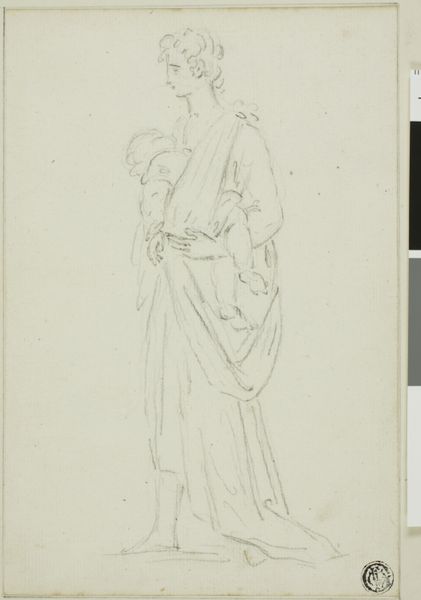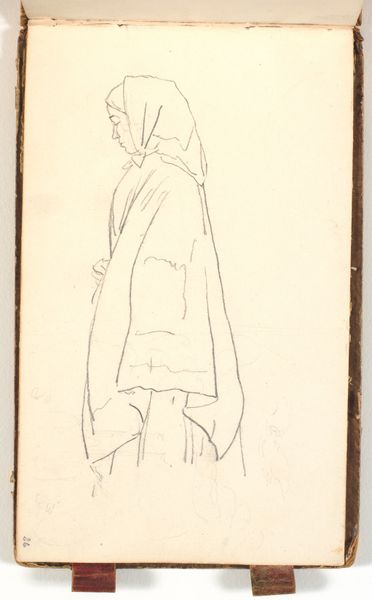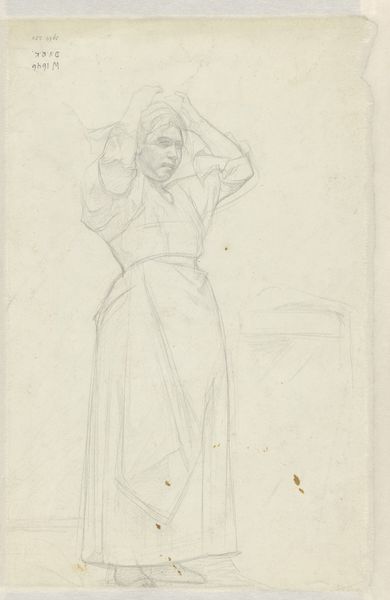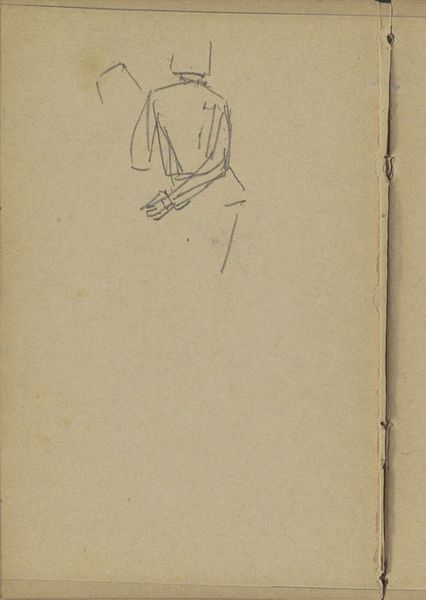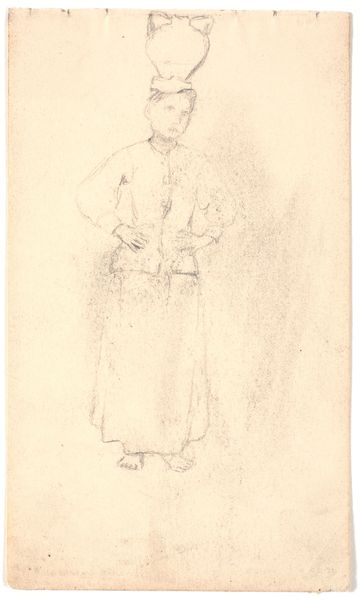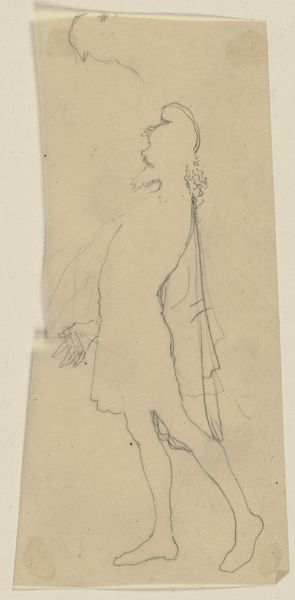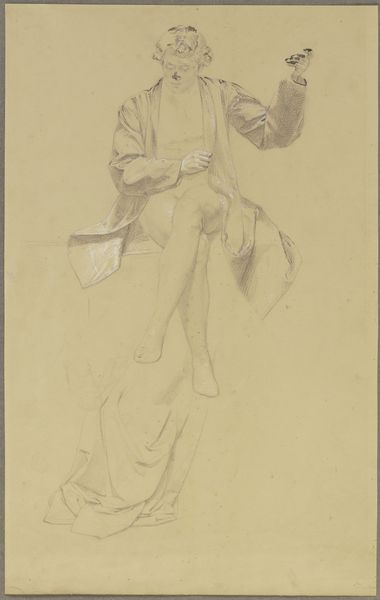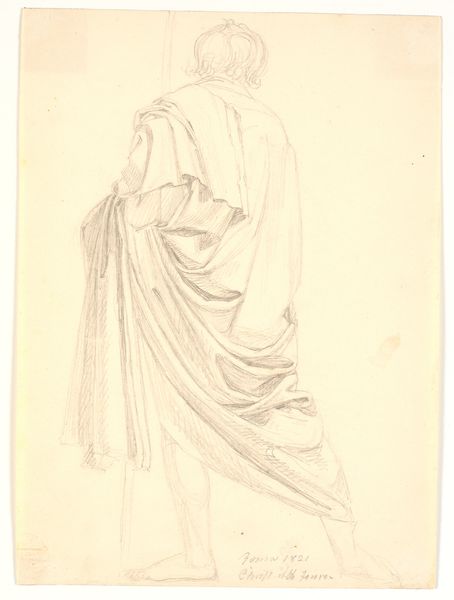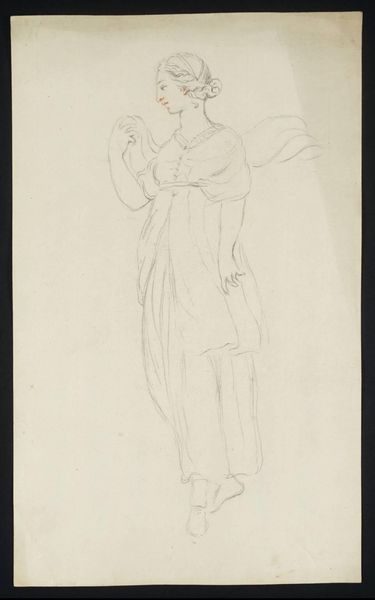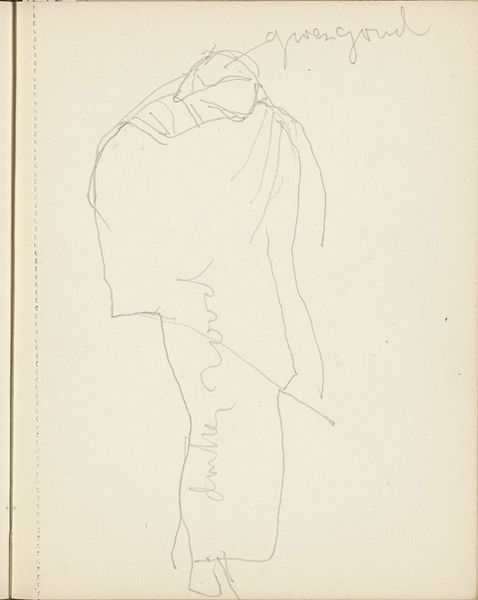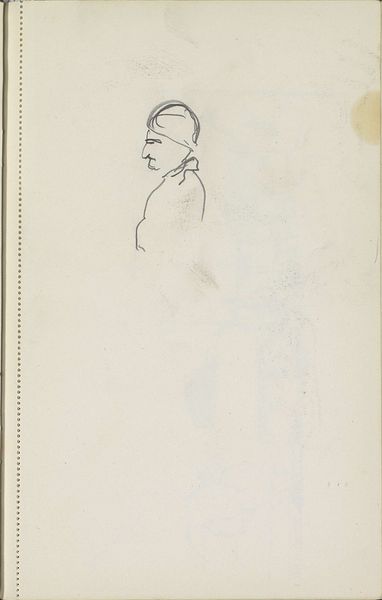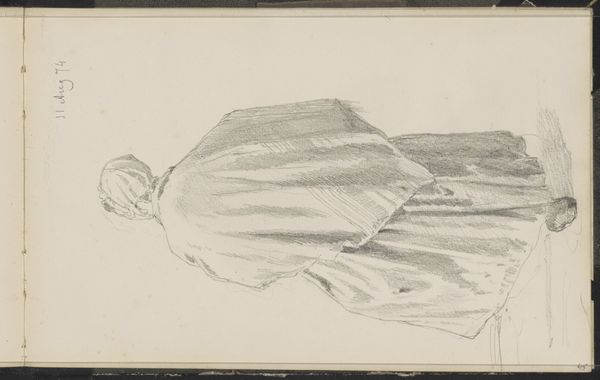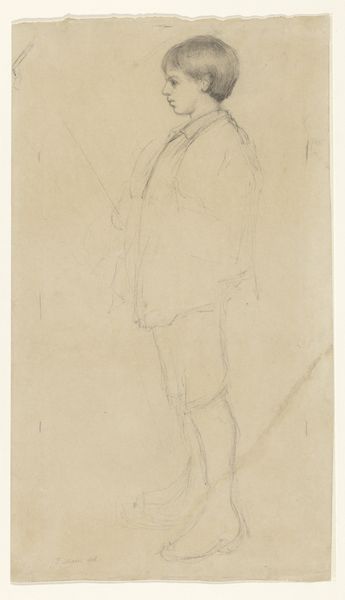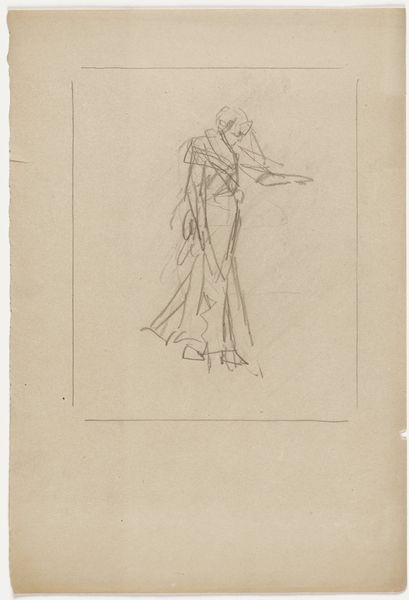
drawing, pencil
#
portrait
#
drawing
#
toned paper
#
light pencil work
#
16_19th-century
#
pencil sketch
#
old engraving style
#
figuration
#
personal sketchbook
#
german
#
idea generation sketch
#
ink drawing experimentation
#
pencil
#
sketchbook drawing
#
pencil work
#
academic-art
#
sketchbook art
Copyright: Public Domain
Curator: Before us we have a piece entitled "Male garbed figure", attributed to Julius Hamel, which resides here at the Städel Museum. It’s executed with light pencil work on what appears to be toned paper. Editor: My initial reaction? Ethereal, almost fleeting. The lightness of the pencil, combined with the toned paper, gives it a ghostlike quality. It looks as though the figure might fade away at any moment. Curator: Indeed, the deliberate use of pencil lends itself to this tentative effect. Note how the strokes define form without fully committing to contours, particularly around the face and hands, encouraging our eye to fill in the gaps. What period conventions do you notice? Editor: There's something reminiscent of academic art about it—the attention to drapery, for example. The way the fabric folds and hangs suggests a preoccupation with classical ideals, but reinterpreted through a 19th-century lens, I’d guess. It raises questions about the role of classical form in the artistic training of the era and the museum’s impact as patron of the arts, but also whether Hamel was experimenting. Curator: Precisely! Hamel seems to have utilized conventions and combined them in a highly original way to demonstrate mastery of form and line. The way light plays across the figure is worth highlighting; it seems he emphasizes specific elements while softening others. Editor: Do you think that approach might be linked to emerging photographic techniques of the time? I mean, photography was beginning to offer an alternative to traditional portraiture, potentially pushing artists like Hamel to explore new aesthetic grounds, or perhaps simply working through ideas for a larger painting? The drawing resembles an experiment in his personal sketchbook. Curator: That is an astute observation! Thinking about it, Hamel seems to embrace what pencil can achieve uniquely, the delicacy and capacity to rapidly ideate. If we think of Barthes’s “punctum”, there are numerous entry points: the barely-there rendering of the features for me captures something melancholic. Editor: Absolutely. For me, that sense of incompletion and ambiguity contributes to its power. This wasn’t about capturing a likeness, so it goes beyond portraiture to embody an exploration of form. It also points to shifting notions of portraiture itself. What new perspectives can you draw out now? Curator: A wonderful demonstration of how line and form interact within this sketch. Editor: Indeed. Hopefully our visitors found new elements in the artist’s study too.
Comments
No comments
Be the first to comment and join the conversation on the ultimate creative platform.
